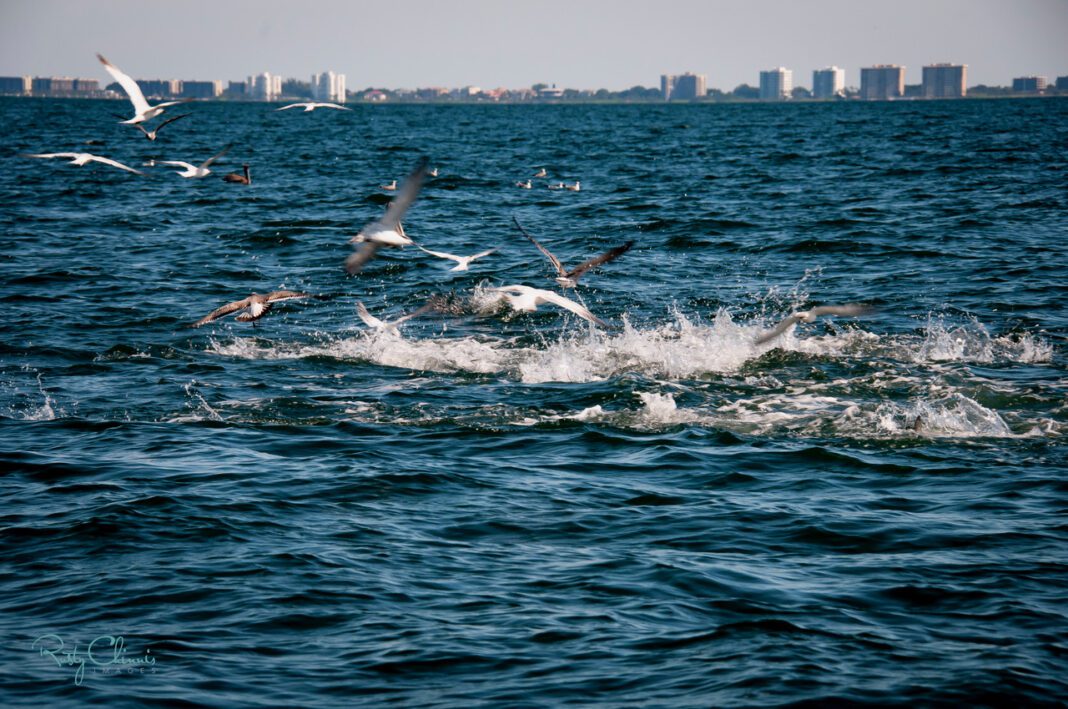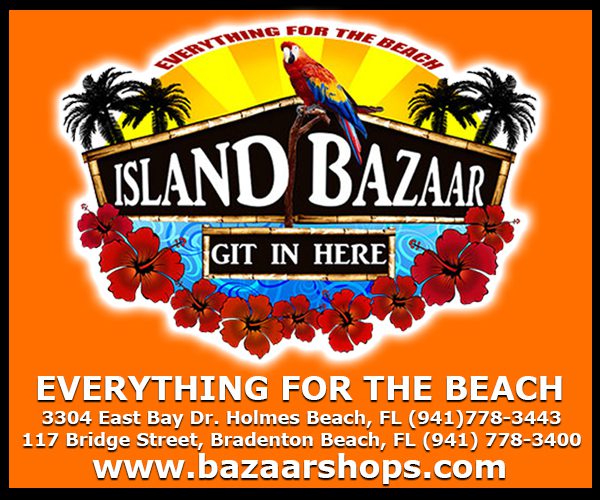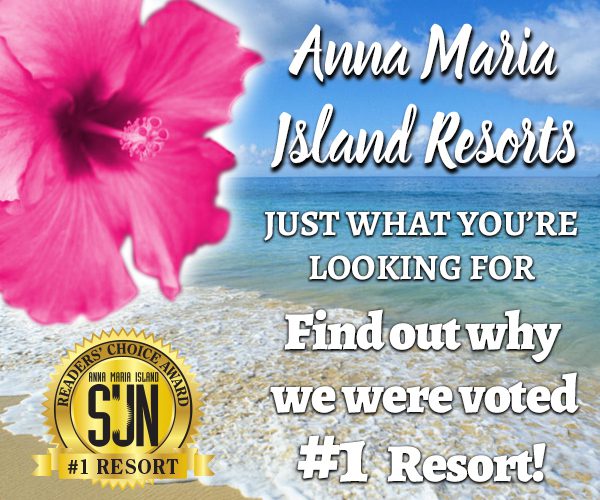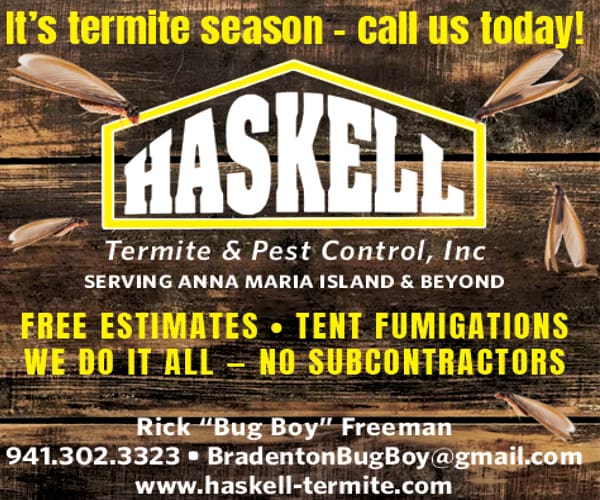Seabirds are one the Suncoast’s prime attractions for anglers, visitors and residents alike. Birds in general, and seabirds specifically, provide a significant boost to Florida’s economy and are a major reason the state ranks as one of the nation’s top wildlife viewing destinations. We are stirred by their song and their aerial displays and are guided to fish as they wheel and dive over schools of bait being plundered by pelagic fish. The haunting sound of a whippoorwill signals the arrival of spring, while the colorful plumage of a spoonbill and the elaborate rituals of herons, terns and other seabirds heralds the breeding season. We marvel at the graceful flight of a formation of black skimmers, their bills tracing paths across the water’s surface at sunset, as they wheel overhead in a rush of wings.
With all that birds provide us, it’s alarming to learn that species-wide, we’ve lost the equivalent of one in four birds in the last 50 years. The major reason is loss of habitat, and the seabirds we treasure are particularly vulnerable due to the loss of mangroves for nesting and the practice of many seabirds to lay their eggs and raise their young just above a barrier island’s high-water line.
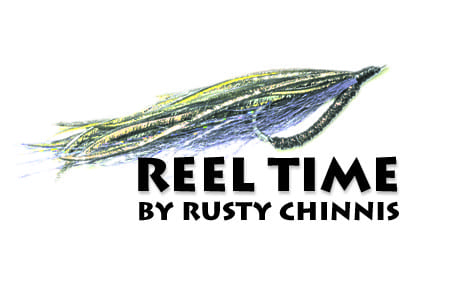 Birds need our help, and there are specific things that anglers and outdoor enthusiasts alike can do to help them. One of the most heartbreaking things anyone can experience is a dead or dying bird garroted in the mangroves by an unsuspecting fisherman’s line. Anglers who fish the coastal waters of Florida will invariably come into contact with seabirds that inhabit the estuaries of our state. Often that encounter is deadly to seabirds if anglers don’t know the basics of avoiding contact with or caring for hooked birds. Birds live here, it’s their home and they aid savvy anglers as they search for food. The birds get into trouble when they come in contact with discarded fishing line in the mangroves or they take line to their roosts after becoming hooked.
Birds need our help, and there are specific things that anglers and outdoor enthusiasts alike can do to help them. One of the most heartbreaking things anyone can experience is a dead or dying bird garroted in the mangroves by an unsuspecting fisherman’s line. Anglers who fish the coastal waters of Florida will invariably come into contact with seabirds that inhabit the estuaries of our state. Often that encounter is deadly to seabirds if anglers don’t know the basics of avoiding contact with or caring for hooked birds. Birds live here, it’s their home and they aid savvy anglers as they search for food. The birds get into trouble when they come in contact with discarded fishing line in the mangroves or they take line to their roosts after becoming hooked.
The incidents of anglers hooking birds can be reduced or eliminated by following a few simple rules. First, never feed birds. This trains birds to look for a handout and leads them to often unsuspecting anglers. Secondly, while you’re fishing, be aware of birds that might be eyeing your bait or lure. It’s easy to pull it out of harm’s way at the last second before a bird dives on it.
If you do hook a bird, make sure that you fight them just like you would a trophy fish to prevent them from breaking the line. Trailing line can be a death sentence for the birds when they return to their roost at night. Care should be taken when handling birds due to their fragile, hollow bones and sharp beaks. First, place a towel over the bird’s head. This will calm them and protect the angler from sharp bills. You can then cautiously remove hooks and unwind line before releasing them.
During nesting season (peaking here May through June) birds are particularly vulnerable, especially those that nest on the beaches of our barrier islands. It’s crucial that humans avoid breeding colonies on public beaches and especially the few places designated as off-limits because of their critical nesting potential. Locally protected areas like Egmont Key and Passage Key are often threatened by unsuspecting and careless beachgoers endangering eggs and young hatchlings. The birds don’t have a voice and it’s left to those of us that appreciate and benefit from them to be their advocates.
If while fishing you see a hooked or tangled bird in an active rookery, don’t approach them during nesting season. Our well-meaning intentions can cause more harm than good by causing startled young birds to fall from the nest.
Taking care of the environment that feeds our passion is everyone’s responsibility. Follow these simple guidelines: be aware of the presence of seabirds, take care in handling them and never feed birds. If you see a bird in distress and it’s not nesting season, you can free them. If they swim or fly away on their own that’s all you’ll need to do. If you believe they are too weak to recover on their own, contact one of the local organizations that rescue and rehabilitate sea birds. On Anna Maria Island you can call Wildlife Inc. at 941-778-6324. To our south, call Save Our Seabirds on City Island in Sarasota at 941-388-3010. Audubon’s Coastal Island Sanctuaries has an informative website and can be reached by calling 813-794-3784. Join Suncoast Waterkeeper in their efforts to protect mangroves and water quality and join Sarasota Bay Watch’s Annual Fishing Line Cleanup in the fall.
Birds of all kinds are a critical component and bellwether of a healthy environment. Let’s all work together to create a vibrant and safe place – for the birds.















